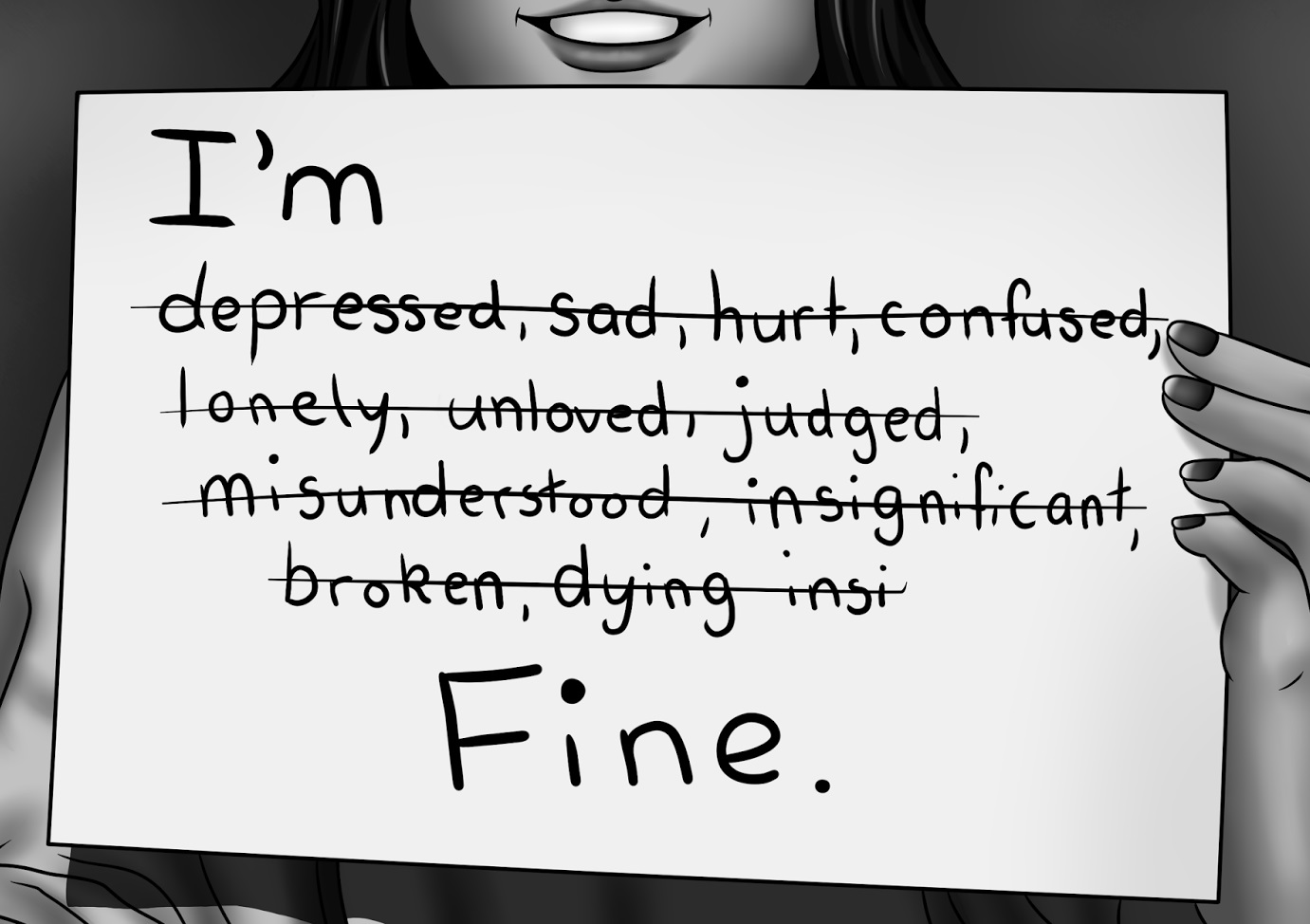When Depression Takes Over by Kyoko Funabashi

October is National Depression Education and Awareness Month. With online schooling, social distancing, and dealing with a pandemic, taking care of our mental health is something that should be one of our top priorities. We are all dealing with at least one mental health issue right now, whether it is everyday stressors, bouts of anxiety, or depression. If you or someone you know is dealing with depression, it is something to pay attention to, especially since suicide is the third leading cause of death for people ages 15-24, and the tenth leading cause of death for all age groups combined.
Educating ourselves and others about depression is important when it comes to removing the stigma around it. Normalizing depression (which is important considering over 16.2 million people have experienced a major depressive episode) will help individuals to not feel shame around feeling depressed, but rather encourage them to reach out for the help that they need. It may also inspire others to reach out to those that they see who may be suffering.
Coping with depression is not something anyone should have to do alone. Many celebrities and politicians suffer from depression, as well as advocate for mental health. Depression is not abnormal, it is a common problem that many experience on a daily basis, and that is why it’s important to get the conversation going, even if it’s uncomfortable at first.
Depression is so much more than simply “feeling sad.” It is complex, and it does not discriminate against age, gender, race, or life situations. It can happen to anyone at any time, and some of its symptoms may include loss of pleasure in activities, weight/appetite change, change in sleeping patterns, fatigue and loss of energy, lack of concentration, feelings of guilt or worthlessness, and suicidal thoughts. If you or someone you know has several of these symptoms that last two or more weeks, help should be sought.
Other facts that may not be understood about depression are that:
- Depression has different triggers. It can stem from a major life event, or can come without any recognizable “cause” at all.
- Some depression is genetic, but not all. The genetic predisposition to depression is becoming better and better understood every day.
- It affects your physical body. Frequent headaches, stomach issues, or any other physical symptoms along with mental symptoms are common for those with depression.
- Depressed people may not look depressed. It’s called the hidden illness for a reason. Some people are good at masking their depression with upbeat and cheerful attitudes.
- Exercise can help manage depression, because it releases endorphins and improves your mood.
We do not have to deal with depression alone. Seeking help is a sign of strength, though it may not feel that way. There is always someone there that can help if we are willing to look, whether that be a counselor, pastor, trusted friend, family, or someone else in the community. We can also be the person to reach out to someone who may be going through depression. A listening ear, a comforting hug, empathy, and asking questions while withholding judgment can go a long way to comfort others.
Other ways to help and educate include:
- Reaching out. Reach out to friends, family, and those in the community. Be willing to offer and/or ask for assistance.
- Share your story. If you are someone who has struggled with depression, don’t be afraid to share about those experiences because it will help others to know that they are not alone.
- Educate yourself. Learn about the common symptoms and effects of depression, because the more you know the easier it will be to recognize when someone (or yourself) may need some love and support.
- Show compassion and understanding. Understand the person going through the depression is trying their best, and they need patience, understanding, and love.
- Advocate for change. Ignite conversations, donate to depression support groups/organizations, join in awareness walks, and follow celebrities who advocate for mental health on social media (like Lady Gaga, Kristen Bell, and Dwayne ‘The Rock’ Johnson).
“You are allowed to feel messed up and inside out. It doesn’t mean you’re defective – it just means you are human.” -David Mitchell
“And if today all you did was hold yourself up, I am proud of you!” – Healthyplace.com
Additional Resources:
Substance Abuse and Mental Health Services Administration (SAMHSA): (800) 662-4357. SAMHSA runs a 24-hour mental health hotline that provides education, support, and connections to treatment. https://www.samhsa.gov/find-help/national-helpline
National Institute of Mental Health (NIMH): (866) 615-6464. In addition to the phone line, there is a live online chat option. These resources are available Monday–Friday, 8:30 a.m. to 5 p.m. EST. https://www.nimh.nih.gov/health/find-help/index.shtml
NAMI, The National Alliance on Mental Health have a Helpline which can be reached Monday through Friday, 10 am–6 pm, ET. 1-800-950-NAMI (6264) or info@nami.org. https://www.nami.org/Support-Education
https://www.mayoclinic.org/diseases-conditions/depression/in-depth/depression/art-20045943
https://www.helpguide.org/articles/depression/coping-with-depression.htm
- Categories: